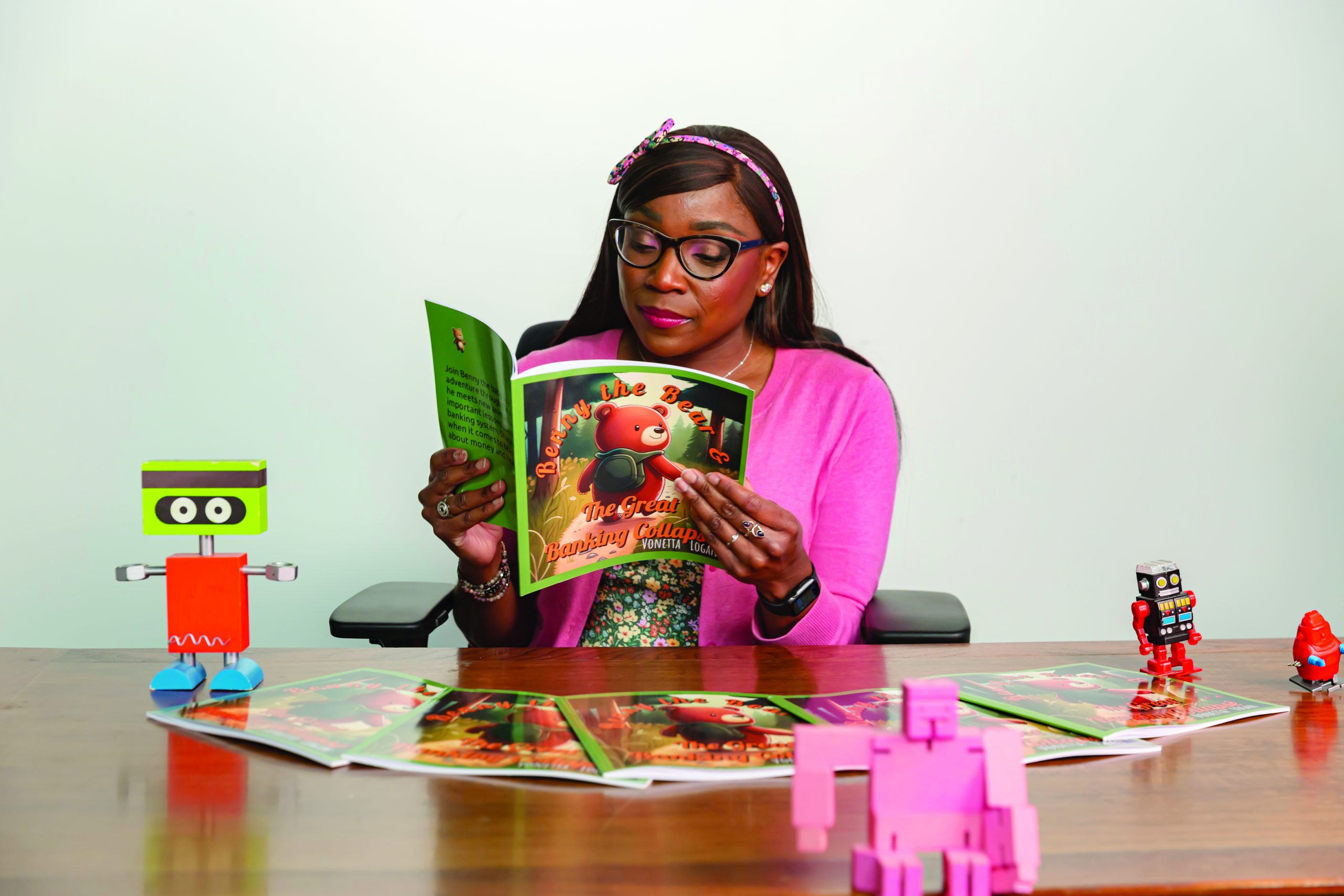There’s More Than One Way To Be Smart
Nature, nurture and emotional intelligence
If you’re a hiring manager, talent scout or just a woman who’s dating well into her 30s, you know that sharing, interpreting and regulating emotions doesn’t always come naturally. Yes, this issue of Luckbox is all about the raw intellectual power of the human brain, but what’s the key factor in determining lifelong success—cognitive intelligence (IQ) or emotional intelligence (EQ)? Let’s gather our “sharing sticks,” sit around the communal feeling circle and delve into our emotions!
If you think EQ is the way to get your bass to “thump” in your hoopty, here’s a primer on EQ/EI, colloquially known as emotional intelligence. The phrase refers to a person’s ability to perceive, control, evaluate and express emotion. For the longest time, a great scientific debate raged over “nature versus nurture.” Put simply, the disagreement centered on whether genes or upbringing determined intelligence. Nerdy McNerdersons were believed to be destined for greatness. Pass “Go,” collect $200 and head straight to Boardwalk with your second wife.
But the paradigm has started to shift. “Some critics began to realize that high intelligence was no guarantee for success in life,” Kendra Cherry says on the Verywell Mind website. “It was also perhaps too narrow a concept to fully encompass the wide range of human abilities and knowledge.” In fact, the debate has now shifted to “book smarts” IQ versus “street smarts” EQ.
Think of all the tortured geniuses who are heralded for their greatness but are jerks when you get right down to it. “Cough. Elon Musk. Cough.” Not just captains of industry, either, but also artists, writers and musicians blessed with high intelligence are often total nightmares as human beings. Looking at you, Tyson Food managers who started a “COVID death pool” for your employees. Yikes!
Cherry writes that, “since the 1990s, emotional intelligence has gone from a semi-obscure concept found in academic journals to a popularly recognized term. Now you can buy toys that claim to help boost emotional intelligence or enroll kids in social and emotional (SEL) classes designed to teach emotional intelligence skills.”
Building EQ
Unlike traditional measures of intellect, emotional intelligence can be learned, developed and refined. Are you going to suddenly discover a new method of cold fusion? Nope. Can you learn to regulate your emotions and improve your interactions with other people? You betcha! In its simplest terms, we can all be better at accepting and recognizing our own emotions and understanding how other people feel so we can interact with them more effectively.
Yes, 2020 seemed like the year where whoever typed in all caps the longest won, but in a year that affected people in vastly different ways, it was nice to read that more people Googled “how to help” and “how to be less racist” than “how to become a millionaire.”
Maya Angelou once remarked that “people will forget what you said, people will forget what you did, but people will never forget how you made them feel.” This is the crux of why calibrating the emotional intelligence of your employees is key to the success of your company. How many times have you had a customer service experience go horribly wrong? How many times has an employee performed so astoundingly well that you’re still talking about it?
“One insurance company discovered that EQ could play a vital role in sales success,” Cherry writes. “Sales agents who ranked lower on emotional intelligence abilities such as empathy, initiative and self-confidence were found to sell policies with an average premium of $54,000. Agents who ranked highly on measures of EQ sold policies worth an average of $114,000.”
That goes both ways. I have found that being “Midwest nice” on the phone when I’m having issues with my bank, cable or delivery order gets better results than coming in hot with a “do you know how much money I spend?” Seriously, I get free HBO now. Nobel Prize-winning psychologist Daniel Kahneman found that people would rather deal with a person they like and trust than someone they do not, even if that means paying more for an inferior product.
What’s the key factor in determining lifelong success—cognitive intelligence (IQ) or emotional intelligence (EQ)?
Time to reinvent
So it’s 2021. New year, new you! Where does one start to become a more self-aware, emotionally intelligent person? To the internet! There’s a decent selection of EQ tests online. We have a list of sites on the next page. I took a few tests, and I am happy to report that I have above-average emotional intelligence. Go me! My strengths are that I’m a positive person who is empathetic, copes well and is socially insightful. Do I sob uncontrollably at videos about animals getting adopted? You bet! But I do it in the privacy of my office. My weaknesses are that I’m not very assertive, my impulse control needs improvement (I once bought a motorcycle on the internet at 2 a.m., and I’m not sorry) and I tend to avoid confrontation.
Those results were from a $10 test I took on the Psychology Today website. The fee also covers advice on how to work with both your strengths and weaknesses. Another fun test, which is free, is on the website greatergood.berkeley.edu, and it has a series of photos of people’s facial expressions. The goal is to see how perceptive you are in reading expressions. I rocked this and only got two wrong, but it’s something you wouldn’t think to test. In an increasingly Zoom-filled workplace, being able to identify emotions via facial expressions is a benefit.

The great irony about all of this is that my superior emotional intelligence skills are in service to a company formed by a group of stock and options traders. On a spectrum of EQ with kindergarten teachers on the high end, tastytrade employees are closer to the emotional intelligence of great white sharks. They’re superior killing machines but not so good with manners.
Surprisingly, this is a very common disconnect between personal versus organizational EQ. But am I going to bring it up? Nope, I hate confrontation, remember? In a study by Paychex, a payroll services provider, researchers found that “most people perceived emotional intelligence as being less important to their boss and company than it was to them personally.” About 43% of respondents rated EQ as extremely important, while only 33.4% thought their boss found it extremely important and 30% thought it was extremely important to their company, the survey said.
Yes, in the dog-eat-dog world of finance, you want decisive, critical problem solvers. But EQ ranked as the sixth most-important skill for employees last year, only a little behind complex problem solving, critical thinking and creativity, according to a Forbes magazine article citing research by the World Economic Forum. In contrast, the sixth most-sought-after skill in 2015 was quality control. That might explain why the customer service from Amazon was so good when they sent me the wrong leopard print bodysuit in the mail.
Anyway, the good news is that EQ scores peak at age 60, according to Robert Levenson, a University of California at Berkeley psychologist. That could explain why older generations (baby boomers and Gen Xers) were more likely than millennials to have emotional intelligence scores above the median. Nearly 64% of baby boomers surveyed scored above the median, and 60.5% of Gen Xers did.
So please, enjoy this issue on human intelligence, but let us all resolve to be kinder to ourselves and to each other. Let’s create a pandemic of emotional intelligence.
Vonetta Logan, a writer and comedian, appears daily on the tastytrade network and hosts the Connect the Dots podcast. @vonettalogan




















